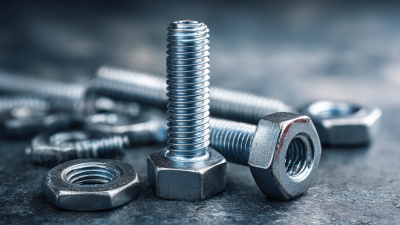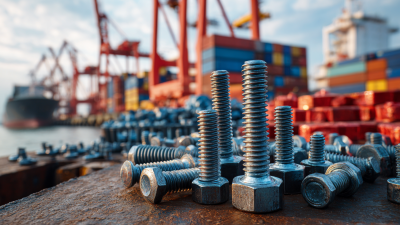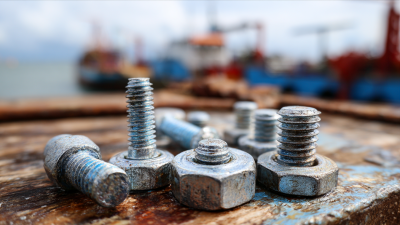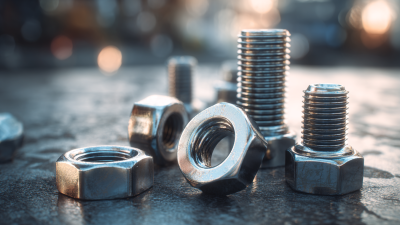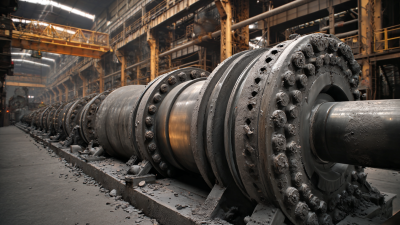Inquiry
Form loading...
In the maritime industry, the significance of marine fasteners cannot be overstated, as they play a crucial role in ensuring the safety, durability, and efficiency of vessels. These specialized fasteners are designed to withstand harsh marine environments, including exposure to saltwater, humidity, and extreme temperatures, which can lead to corrosion and structural failure if not properly managed. Understanding the different types of marine fasteners and their specific applications is essential for shipbuilders, maintenance crews, and engineers alike. This blog aims to provide a comprehensive guide on how to select and utilize marine fasteners effectively, highlighting their importance in various maritime operations and helping industry professionals make informed decisions that enhance the longevity and performance of their fleets.
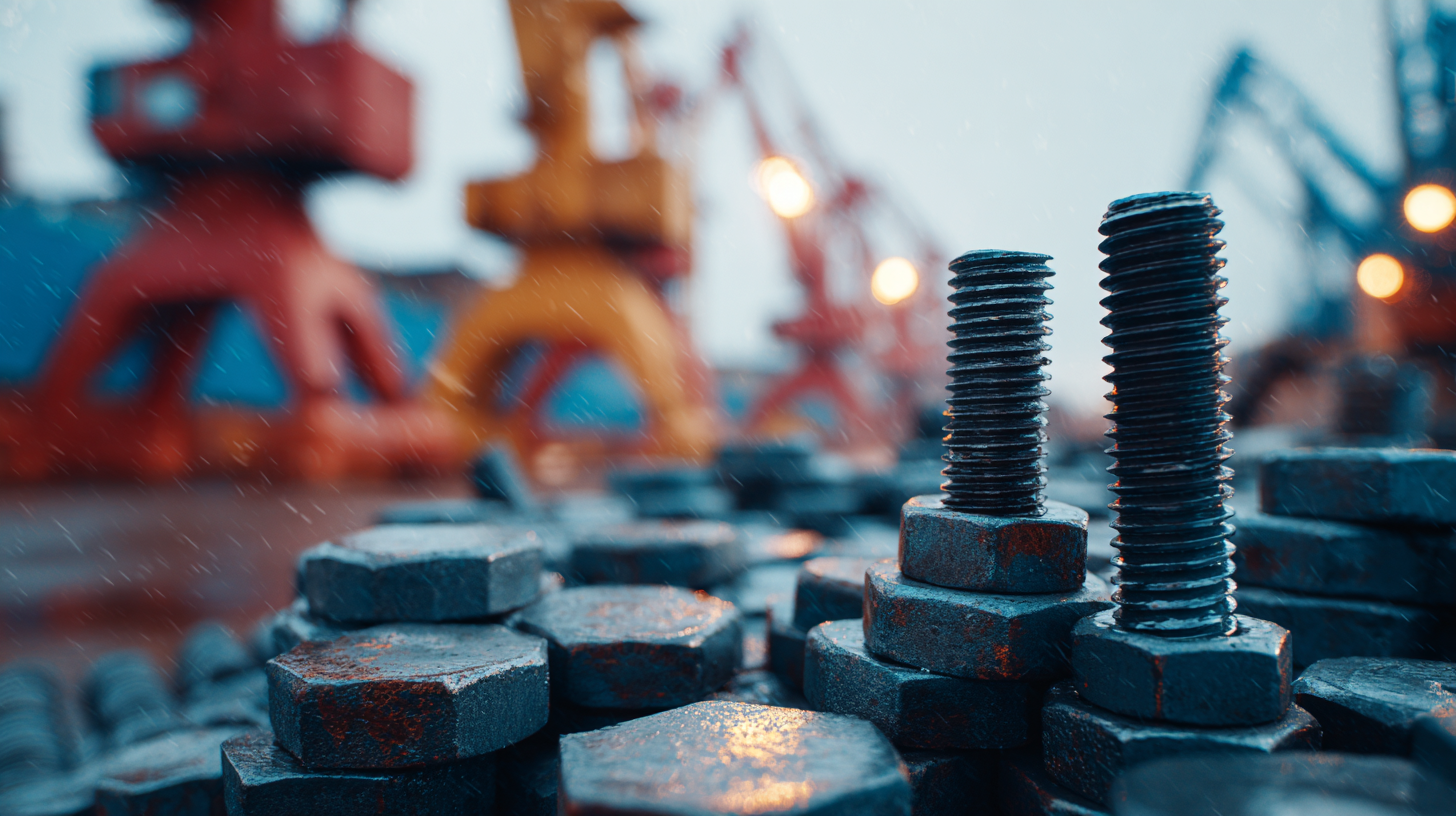
Whether for new construction or repairs, mastering the use of marine fasteners is a fundamental skill that can significantly impact the success of any maritime endeavor.
In the maritime industry, marine fasteners play a critical role in shipbuilding and repair, ensuring the structural integrity and safety of vessels. The importance of these components cannot be overstated; they are essential in maintaining the connections between various parts of a ship, from hulls to deck fittings. According to a report by the Marine Fasteners Association, the demand for marine fasteners is projected to grow by over 5% annually, driven by an increase in global shipping activities and the need for regular maintenance on aging fleets.
Recent advancements in ship repair technology signify the industry's commitment to enhancing efficiency and effectiveness. The Russian Ministry of Industry & Trade has announced plans to develop container-based robotic systems aimed at improving the labor efficiency of port repairs, particularly in the overhaul of propeller-rudder systems. This innovation not only aims at reducing downtime but also highlights the necessity of high-quality marine fasteners that can withstand the rigors of advanced repair techniques and environments. As the use of automation in ship maintenance grows, the demand for durable and reliable fasteners will be paramount to achieving superior performance and longevity in maritime vessels.
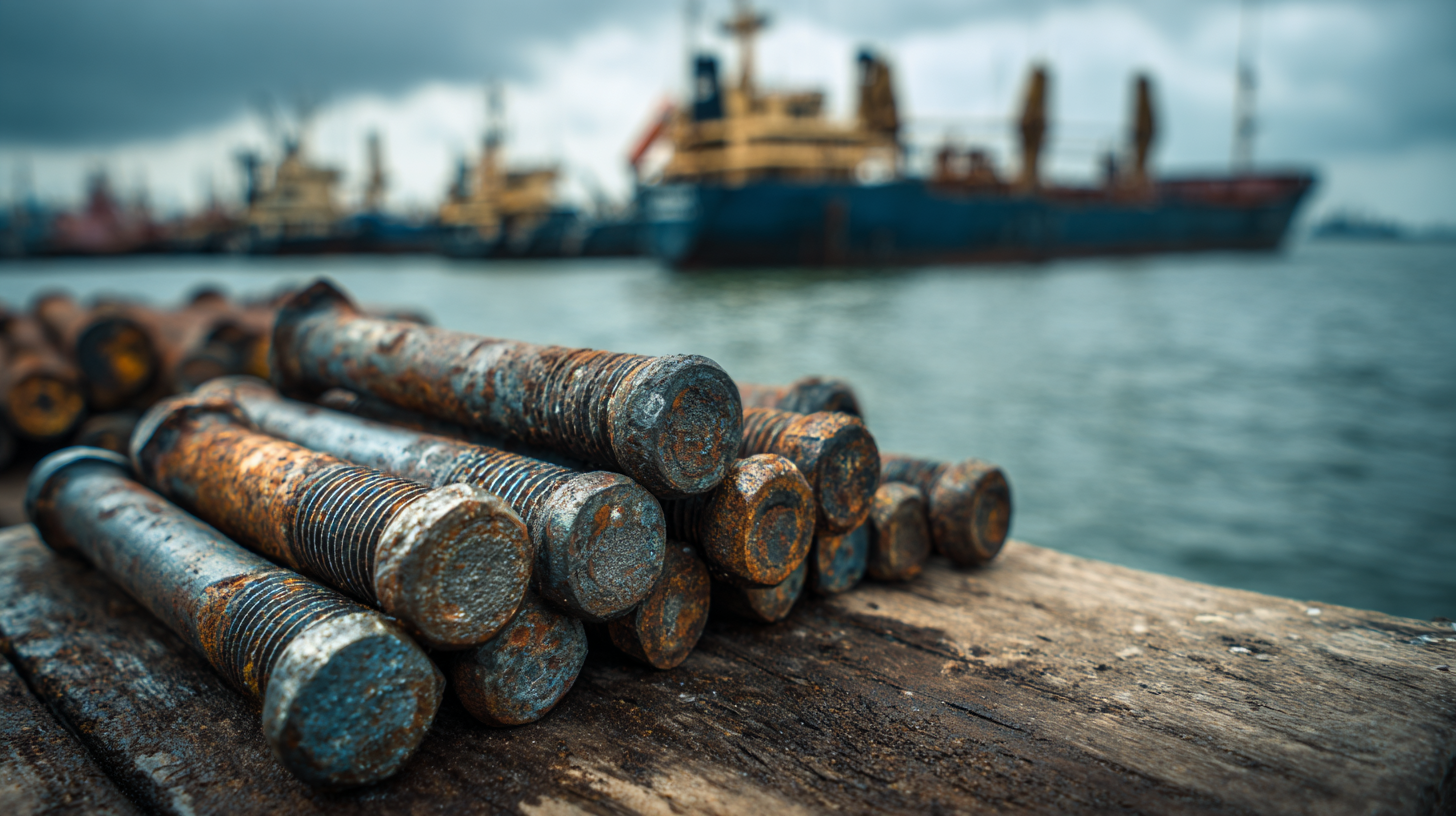
Marine fasteners play a crucial role in the maritime industry, ensuring the safety and integrity of vessels exposed to harsh marine environments. Among the various types of fasteners used on boats and ships, five stand out for their unique properties and applications.
First on the list are stainless steel bolts, known for their corrosion resistance and strength, making them ideal for securing heavy components in seawater conditions. Next, nylon screws are gaining popularity due to their lightweight nature and resistance to rust, perfect for applications where weight reduction is essential. Third are marine-grade eye bolts, which are vital for lifting and securing loads, providing a reliable anchor point for ropes and cables.
Another essential type is the locknuts, which prevent loosening due to vibrations and harsh movements typical in marine operations. Lastly, marine staples serve as versatile fasteners in various applications, from securing tarps to fastening components in construction. Each of these fasteners contributes significantly to the overall functionality, durability, and safety of marine vessels, highlighting the importance of selecting the right type for specific applications.
When selecting marine fasteners for maritime applications, several key considerations must be taken into account to ensure safety, durability, and performance. It is crucial to choose materials that can withstand the harsh marine environment, characterized by high humidity, saltwater, and temperature fluctuations. According to a report by the International Maritime Organization, corrosion is a leading cause of failure in marine fastening systems, accounting for approximately 30% of all marine repairs. Stainless steel and high-grade alloys, such as titanium and bronze, are commonly recommended for their resistance to corrosion and robust mechanical properties.
Tips for selecting the right marine fasteners include assessing the specific environmental conditions your vessel will encounter. For instance, using coated fasteners can provide additional protection against corrosion. Always ensure that the fasteners meet industry standards, such as those outlined by the American Bureau of Shipping (ABS) or Lloyd's Register, as these guidelines help guarantee reliability in critical applications. Furthermore, incorporating vibration-resistant designs can significantly reduce the risk of loosening under dynamic loads, a vital factor given that marine vessels often face turbulent conditions.
Lastly, consider the ease of installation and maintenance. Fasteners that are user-friendly and require minimal tools for installation can save time and reduce labor costs. Regular inspections and maintenance of fastening systems are also recommended to prolong their lifespan. By paying attention to these considerations, maritime professionals can enhance operational efficiency and safety in their vessels.
Corrosion-resistant marine fasteners play a crucial role in ensuring the longevity and safety of maritime structures and vessels. The harsh marine environment, characterized by saltwater, humidity, and varying temperatures, poses significant challenges to traditional fasteners, which often succumb to rust and degradation. By utilizing materials such as stainless steel, titanium, and specialized coatings, corrosion-resistant fasteners provide enhanced durability, ensuring that critical components remain securely fastened over time. This not only minimizes the risk of structural failure but also reduces maintenance costs, allowing shipowners and operators to focus on other essential aspects of vessel operation.
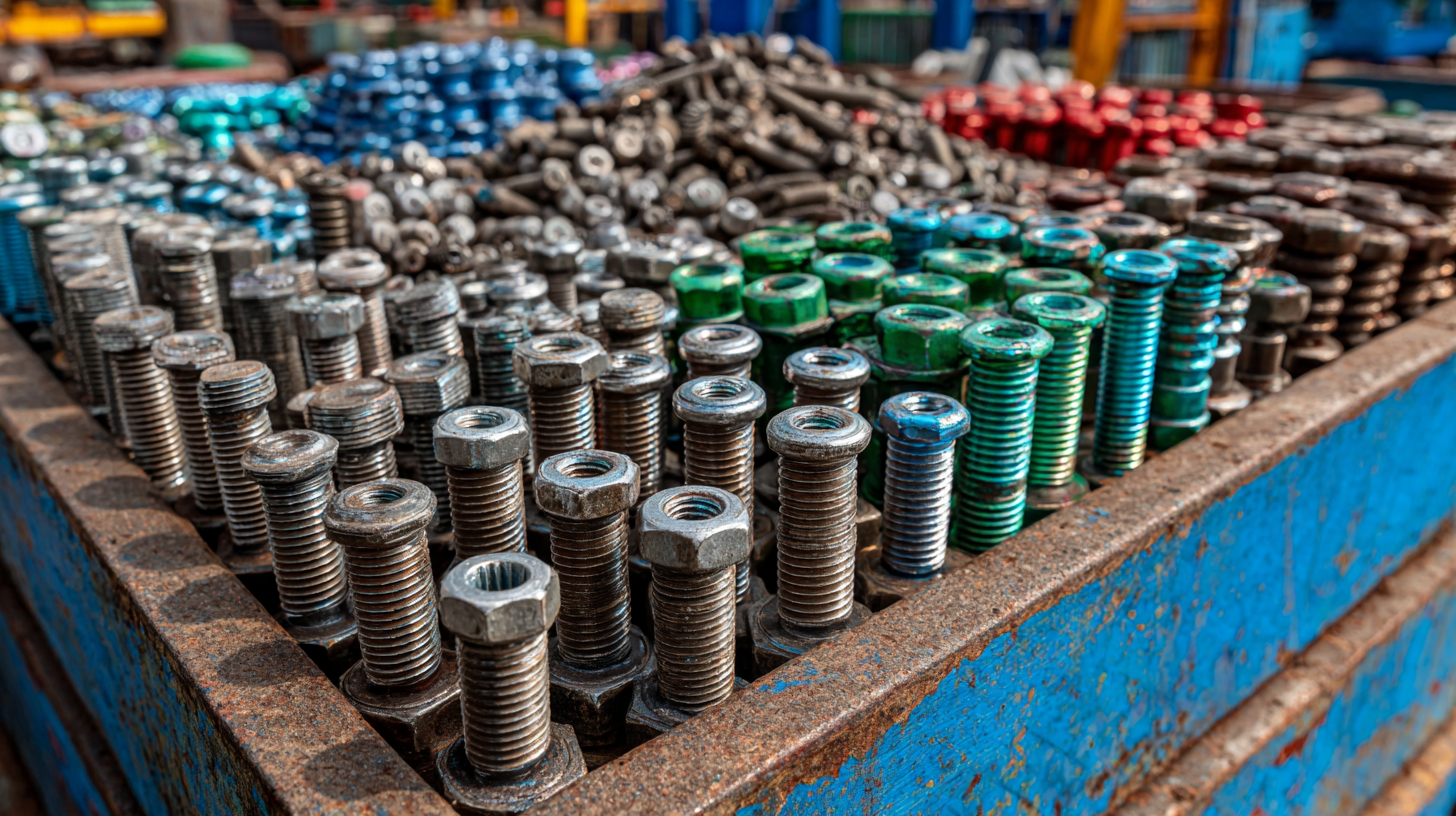
In addition to extending the service life of maritime equipment, corrosion-resistant fasteners contribute to the overall efficiency of maritime operations. The enhanced reliability of these fasteners means fewer breakdowns and repairs, leading to increased uptime for vessels. Moreover, the ability to withstand the elements also means that maritime businesses can enjoy greater peace of mind, knowing that their investments are protected against the relentless forces of nature. Ultimately, the choice of marine fasteners can significantly impact the performance and safety of maritime operations, making the use of corrosion-resistant options a wise and strategic decision for anyone involved in the industry.
Marine fasteners play a critical role in ensuring the durability and safety of maritime structures. The best practices for installing these fasteners effectively are essential not only for maintaining the integrity of vessels but also for protecting marine ecosystems. Proper installation prevents leaks and structural failures, which can lead to environmental risks, such as those seen in oil spills that adversely affect marine benthic communities. By prioritizing careful handling and rigorous assessment during installation, marine professionals can mitigate potential damage to fragile coastal areas.
Furthermore, adopting guidance on emerging marine protection tools can enhance the effectiveness of fastener installation processes. Best practices should include the use of environmentally-friendly materials and techniques that align with conservation goals. By integrating socio-economic factors into marine fastening projects—such as stakeholder involvement and compliance with marine policies—industry players can also ensure that their actions contribute positively to preserving biodiversity, thus fostering a more sustainable maritime industry. Effective management, especially in marine protected areas, underscores the need for meticulous practices in fastener installation that align with broader conservation objectives.
